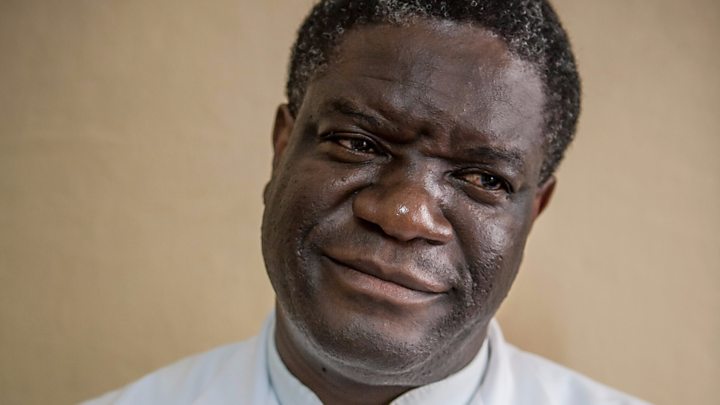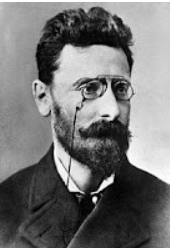In what has been called the “rape capital of the world” by a top UN official, Dr. Denis Mukwege offers hope to women whose attacks destroyed their bodies and now their lives. Before filling a desperate need and specializing in rape trauma surgery, Dr. Mukwege aspired to help women of the Democratic Republic of Congo (DRC) by providing better maternity care. In the DRC, one percent of women die during childbirth (to put it in perspective that is 1 for every 100 which makes Congolese women 8 more times likely to dye than in “developed countries,” where the number is on average of 12 in every 100,000).1 However, shortly after he founded the Panzi Hospital in 1999, Dr. Mukwege’s life took an entirely different course when his first patient was admitted. Instead of looking to have a baby, she sought treatment after suffering a rape where the assailants, from one of the many military groups in the DRC, had shot her in the genitals.2 Shortly after this event, the hospital cared for forty-eight baby girls, all raped by a local mans army, one of the tens of military, paramilitary, rebels, and foreign militant groups who use terror to displace locals and refugees in an attempt to secure natural resources.3 Luckily, these particular rapes stopped after the hospital and other human rights groups convinced a military court to prosecute the case.

Though Dr. Mukwege did not realize it at the time, founding his hospital in Eastern Congo would help him “become the world’s leading specialist in the treatment of wartime sexual violence and a global campaigner against the use of rape as a weapon of war.”4 Caring for more than 3,500 women per year, and sometimes up to 10 women a day, Dr. Mukwege, as well as 370 doctors, nurses and support staff, do more than simply repair women physically, they also work to improve their lives in many meaningful ways.5 They follow a five-pillar method. The hospital works with each woman to provide physical medical treatment, psycho-social therapy, socioeconomic support and training, community reintegration and, finally, legal assistance in done in the order listed. A senior advisor to Dr. Mukwege, Elizabeth Blackney, describes this program as:
“Once [women] get through [their] psycho social and medical healing, [they] move on and work with our socioeconomic pillar [to] learn literacy and numeracy and education. [Women] have a safe space to learn vocational skills. And then we of course provide legal aid and assistance to help people get justice.”6
This work is not done without risk, however, and, in 2012, shortly after giving a speech at the United Nations in which he called for an end to the corruption within the government of the DRC, and stated not enough was being done to stop “an unjust war that has used violence against women and rape as a strategy of war,” five armed men stormed the Mukwege family compound in an attempt to assassinate Dr. Mukwege, his wife, and two daughters.7 While Dr. Mukwege and his family survived, his trusted friend and bodyguard, Joseph Bizimana, died protecting the family.8

Though he fled to Belgium, he returned to the DRC not long afterwards, when women of the DRC sold their harvests and raised money to buy Dr. Mukwege and his family plane tickets back. When asked about his return, Dr. Mukwege told the British Broadcasting Network that “[a]fter that gesture, I couldn’t really say no. And also, I am myself determined to help fight these atrocities, this violence. My life has had to change, since returning. I now live at the hospital and I take a number of security precautions, so I have lost some of my freedom.”9 Despite the danger to his own life, Dr. Mukwege continues to transform the lives of many Congolese women in powerful, positive, and lasting ways. He is the light for thousands of women and continues to champion for the protection of women from current and future horrors that are the hallmarks of the conflict in the DRC since the mid 1990s. Proof of his incredible impacts is a woman named Sarah. Her attackers, after slaughtering her village, tied her to a tree where she was brutally raped by different men for days. When she arrived at the hospital, she was in critical condition, unable to even stand on her own. But, as each day passed, her will to live became stronger, and “[t]oday, Sarah is a beautiful, smiling, strong and charming woman…[who] runs her own business…bought a plot of land…has built a little house [and] is independent and proud.”10 For these efforts and all of his contributions, in October of 2018, he was announced as the co-recipient to the Nobel Peace Prize with Nadia Murad “for their efforts to end the use of sexual violence as a weapon of war and armed conflict.”11
- Jackson Sinnenberg, “‘Dr. Miracle’ Is The Co-Recipient Of The Nobel Peace Prize,” NPR, October 05, 2018, Accessed December 06, 2018, https://www.npr.org/sections/goatsandsoda/2018/10/05/654699946/dr-miracle-is-the-co-recipient-of-the-nobel-peace-prize; “Maternal Mortality,” World Health Organization, February 16, 2018, Accessed December 06, 2018, https://www.who.int/news-room/fact-sheets/detail/maternal-mortality. ↵
- Jackson Sinnenberg, “‘Dr. Miracle’ Is The Co-Recipient Of The Nobel Peace Prize,” NPR, October 05, 2018, Accessed December 06, 2018, https://www.npr.org/sections/goatsandsoda/2018/10/05/654699946/dr-miracle-is-the-co-recipient-of-the-nobel-peace-prize; Dr. Denis Mukwege, “The Nobel Peace Prize 2018,” NobelPrize.org, Accessed April 07, 2019, https://www.nobelprize.org/prizes/peace/2018/mukwege/55721-denis-mukwege-nobel-lecture-2/. ↵
- Mewiga Baregu, “Congo in the Great Lakes Conflict,” In Security Dynamics in Africa’s Great Lake Region, edited by Gilbert M. Khadiagala, 59-79. (Boulder: Lynne Rienner Publishers, Inc., 2006); Dr. Denis Mukwege, “The Nobel Peace Prize 2018,” NobelPrize.org, Accessed April 07, 2019, https://www.nobelprize.org/prizes/peace/2018/mukwege/55721-denis-mukwege-nobel-lecture-2/. ↵
- “Dr Denis Mukwege,” Dr. Denis Mukwege Foundation, Accessed December 06, 2018, https://www.mukwegefoundation.org/story/dr-denis-mukwege/. ↵
- “Nobel Peace Prize Winner: Denis Mukwege from DR Congo,” BBC News, October 05, 2018, Accessed December 06, 2018, https://www.bbc.com/news/world-africa-45759304. ↵
- Sinnenberg, Jackson, “‘Dr. Miracle’ Is The Co-Recipient Of The Nobel Peace Prize,” NPR, October 05, 2018, Accessed December 06, 2018, https://www.npr.org/sections/goatsandsoda/2018/10/05/654699946/dr-miracle-is-the-co-recipient-of-the-nobel-peace-prize. ↵
- “Dr Denis Mukwege,” Dr. Denis Mukwege Foundation, Accessed December 06, 2018, https://www.mukwegefoundation.org/story/dr-denis-mukwege/. ↵
- “Nobel Peace Prize Winner: Denis Mukwege from DR Congo,” BBC News, October 05, 2018, Accessed December 06, 2018, https://www.bbc.com/news/world-africa-45759304. ↵
- Sinnenberg, Jackson, “‘Dr. Miracle’ Is The Co-Recipient Of The Nobel Peace Prize,” NPR, October 05, 2018, Accessed December 06, 2018, https://www.npr.org/sections/goatsandsoda/2018/10/05/654699946/dr-miracle-is-the-co-recipient-of-the-nobel-peace-prize. ↵
- Dr. Denis Mukwege, “The Nobel Peace Prize 2018,” NobelPrize.org, Accessed April 07, 2019, https://www.nobelprize.org/prizes/peace/2018/mukwege/55721-denis-mukwege-nobel-lecture-2/. ↵
- “The Nobel Peace Prize” 2018, NobelPrize.org, Nobel Media AB 2019, (Accessed 7 Apr 2019), <https://www.nobelprize.org/prizes/peace/2018/summary/>. ↵



56 comments
Celeste Flores
What Dr. Mukwege has done for women is something more people should do. He selflessly worked in order to aid and give attention to one of the most important issues in our world right now. He put his and family’s lives in danger for the women of the Republic of Congo, his hospital gave attention to the issue and with the help of human rights groups, the rapes stopped. This is a huge public health issue that should be given more attention.
Michael Thompson
I think that this is really important, as this man is a hero for thousands of woman in his country, and affecting a lot more around the world with his work. With him leading the push for rape not to be used as a weapon of war, hopefully that will cause less of it, which would be huge. The fact that he is an advocate along with helping those who are hurt is such a large impact, and without him thousands would be suffering because of it.
Analisa Cervantes
I find it interesting how Dr. Mukwege was willing to risk his life to help these women in the Democratic Republic of Congo and how the women appreciated his efforts. Instead of just treating them he also helped them secure better futures for themselves. Although he and his family were eventually driven out of the Democratic Republic of Congo, the women he helped appreciated his efforts and decided to raise money to bring him and his family back.
Kelsey Sanchez
This article was quite interesting due to the way it explains what Dr.Mukwege would do to help these women. As this hospital existed this helped women realize that they were not alone and that there can always be a way to seek justice. It was nice to see the effort and dedication put into helping people that are in these conditions. I believe his story shall continue to be spread out because he was a person that seeks the empowerment of women who were the target at war.
Steven Clinton
Great article! Dr Mukwege was a caring selfless man of the community. Its important to recognize how dangerous the DRC was during its civil war. There are many rival fractions scatter all across the country, duking it out for resources and territory control. These same fractions would pillage from local villages and also sexually assault women. Dr Mukwege was a seen as a guardian protector in the eyes of the women. He stood his ground against the government and various guerilla fractions within the nation.
Madelynn Salinas
I think this article really calls attention to the importance of aiding victims of sexual violence. This is not something I feel like enough people talk about or even know how to begin if they did wish to help a woman who has suffered from sexual violence. Dr. Mukwege’s work is very important and continues to progress against a dangerous opposition to his practices within the community and I think that is very admirable.
Isabella Torres
Reading this article was the first time I have ever really heard about a doctor specializing in rape trauma surgery. It was amazing to read about all of the positive change Dr. Denis Mukwege has been able to bring into so many women’s lives, especially in the rape capital of the world. It is so sad and scary to know that things like the are still happening all over the world; it is also terrifying to know that there are people out there wanting to harm people like Dr. Mukwege who just want to bring peace and healing to others. Dr. Mukwege definitely deserved to receive the Nobel Peace Prize.
Jacob Silva
This article is excellent in the sense that I have learned something that I previously did not know and then the fact that the topic discussed is highly relevant and should be talked about. Hearing about Dr Mukwege and his empowerment of women through his efforts is comforting and reassuring to know that these women who may have lost their hope are finding strength as a result from his work.
Judy Reyes
This article was interesting in that I have never heard of a doctor specializing in sexual violence. This article gives people knowledge of the great people that live in our world. Despite the back lash he received for starting this hospital he never stopped supporting and inspiring women. Himself along with his amazing team that works with him have saved the lives of many woman.
Justin Martinez
This article was very short, but filled with information. It’s always inspiring to see someone make such a positive impact for their society. I never knew rape was considered a weapon of war, and I’m glad it was brought to the UN’s attention. It is a crime that affects victims in a variety of ways, and I’m glad that the doctors help them in as many ways that they do. It’s also interesting that they provide the victims with a place to be educated as well.